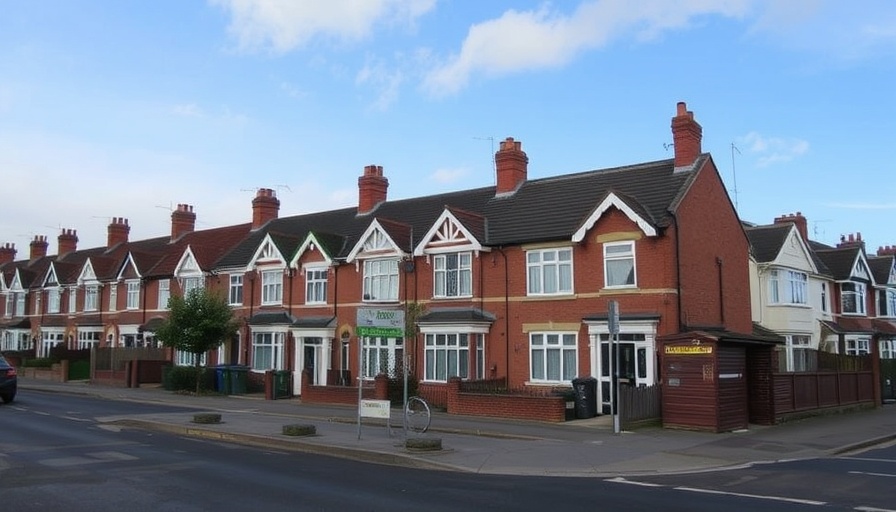
Market Adjustments: The Role of Stamp Duty in UK Property Prices
In recent months, UK property owners and potential investors have witnessed a notable decline in asking prices, as highlighted by Rightmove’s latest report. This shift marks a significant adjustment in the UK housing market, particularly in response to increasing stamp duty rates. The implications of these changes are multifaceted and resonate deeply within the property finance sector.
Understanding Stamp Duty and Its Impact
Stamp duty, a tax levied on property transactions, has become a focal point for discussions regarding property affordability in the UK. Higher rates can deter buyers, leading to decreased demand which consequently pushes prices down. This adjustment period showcases how sensitive the housing market is to tax fluctuations and economic conditions. As buyers reevaluate their resources, those who can navigate this landscape effectively stand to benefit from opportunities in the market.
The Broader Economic Context: How External Factors Influence Property Prices
The fall in asking prices is not an isolated phenomenon; it reflects a broader economic climate shaped by various external factors, including increasing living costs and interest rates. As inflation continues to exert pressure on household budgets, potential buyers may find themselves squeezed, leading to a natural cooling in property prices. Understanding the interplay between these factors is essential for property owners and investors looking to position themselves strategically in this dynamic environment.
Future Predictions: What Lies Ahead for the UK Housing Market
Market analysts are divided on the future trajectory of UK property prices. Some predict a stabilization in the coming year as the market adjusts to higher stamp duty, while others foresee continued fluctuations as the economy grapples with other underlying issues. Investors should remain vigilant, monitoring changes in both economic indicators and legislative adjustments that could significantly affect demand and pricing.
Practical Insights: Strategies for Property Owners and Investors
Given the current landscape, it is essential for property owners and investors to develop proactive strategies. Here are three actionable insights:
- Evaluate Property Value Assessments: Regularly reassess your property value in light of market trends. Adjusting your asking price to reflect current conditions can attract potential buyers.
- Diversify Investment Portfolios: Consider diversifying investments to mitigate risks associated with falling property prices. Engaging in different property sectors or geographical markets can provide a safety net.
- Stay Informed on Legislative Changes: Keep an eye on potential legislative changes to stamp duty and other housing regulations that may impact the market. This awareness prepares you to adapt swiftly to new conditions.
Counterarguments: Optimism Amidst Challenges
While asking prices are falling, it’s crucial to recognize that some experts maintain an optimistic outlook on the UK housing market's potential for recovery. Factors such as strong employment rates in specific sectors, continued interest from foreign investors, and government initiatives aimed at stimulating housing can contribute to market resilience. Engaging with these diverse perspectives can lead to a more balanced understanding of potential risks and rewards.
Conclusion: Taking Action in a Fluid Market
As the UK housing market grapples with the ramifications of higher stamp duty and broader economic challenges, property owners and investors must stay informed and agile. Understanding the shifting landscape is key to making strategic decisions amidst uncertainty. To capitalize on current opportunities, consider leveraging expert advice, engaging with market analyses, and remaining proactive in your real estate strategies. The current situation, while challenging, also presents unique possibilities for those ready to navigate its complexities.
 Add Row
Add Row  Add
Add 





 Add Row
Add Row  Add
Add 








Write A Comment